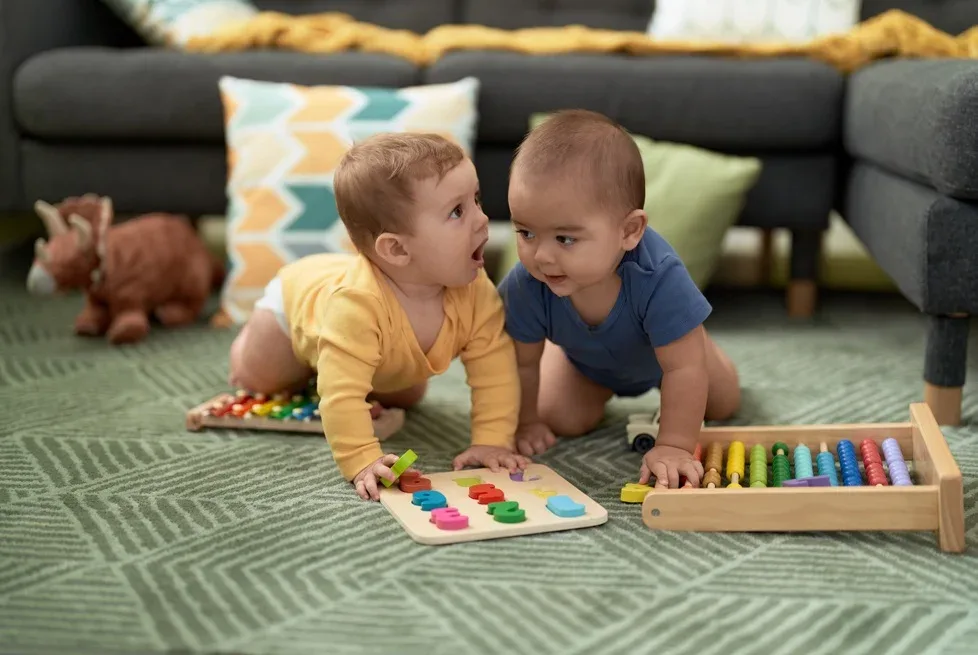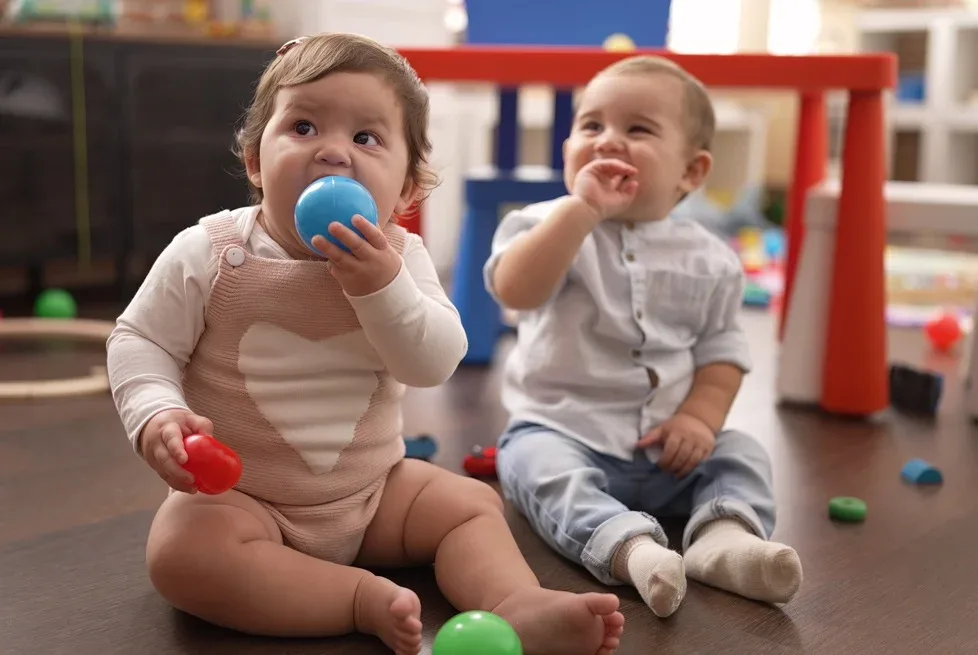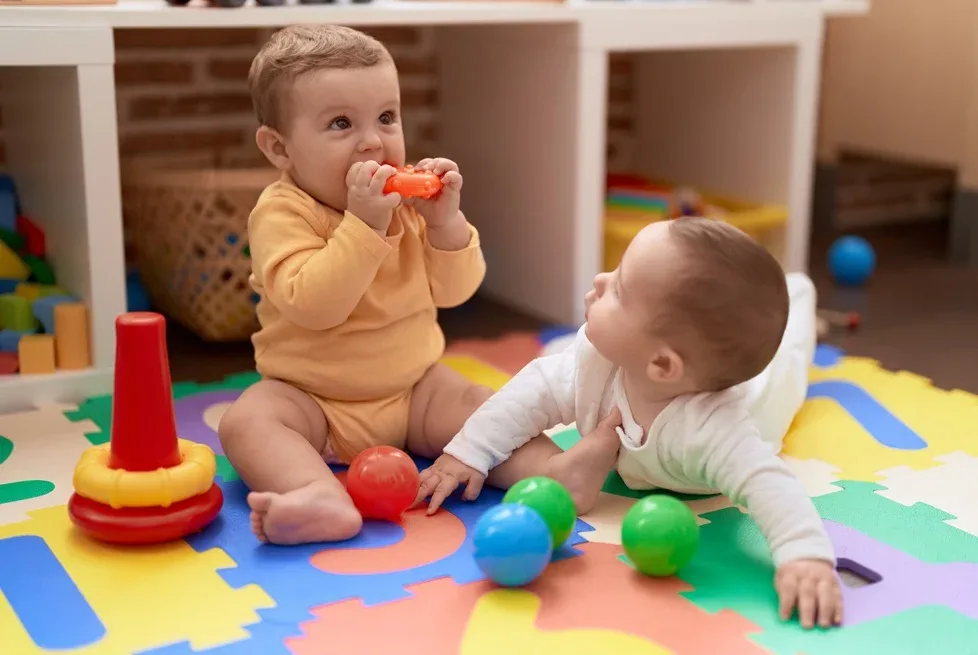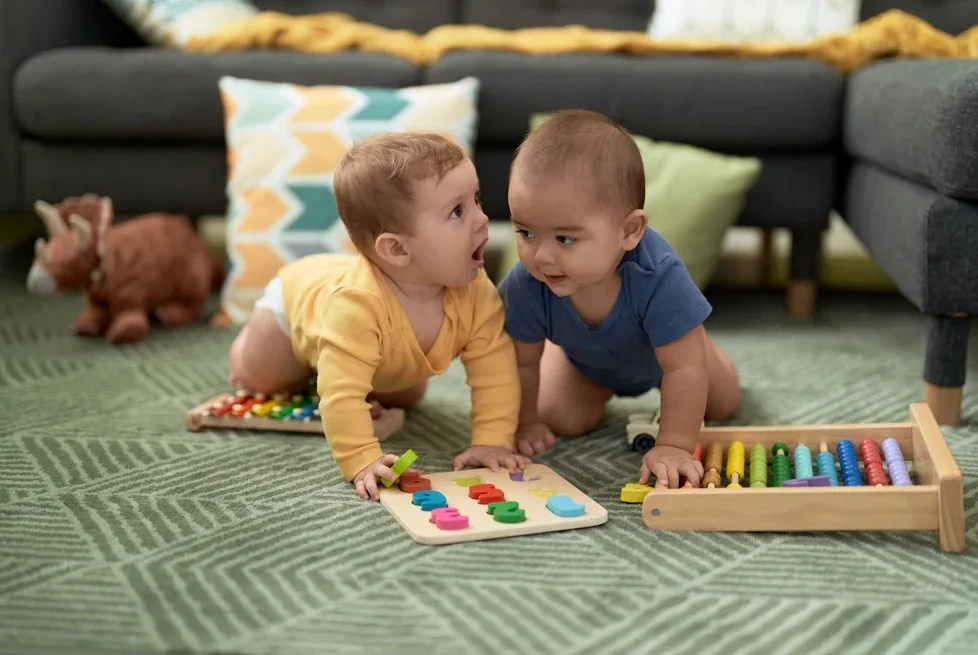
Biting in daycare is a common challenge many parents and caregivers face, but it’s important to understand that this behavior is a natural part of early childhood development. At Deecyda, we know how stressful it can be for both parents and daycare providers when biting incidents occur. However, by understanding the reasons behind this behavior and implementing effective strategies, we can help children learn how to express themselves in more positive ways. In this article, we’ll explore the causes of biting, how daycare providers can address it, and how Deecyda supports both parents and caregivers in creating a safe and nurturing environment for every child.
Contents
- 1 Is It Normal for Kids to Bite in Daycare?
- 2 Why Do Children Bite in Daycare?
- 3 How to Prevent Biting in Daycare
- 4 The Role of Daycare Providers in Addressing Biting
- 5 Teaching Children Boundaries After a Biting Incident
- 6 How to Support the Child Who Was Bitten
- 7 What to Do if Biting Becomes a Pattern
- 8 The Importance of Early Intervention
- 9 Commonly Asked Questions (FAQ)
- 10 Conclusion: Every Bite Is a Teachable Moment
Is It Normal for Kids to Bite in Daycare?
Absolutely. According to the American Academy of Pediatrics, biting typically peaks between 12 and 30 months, as children are still developing their social and communication skills. As kids grow and their language abilities improve, biting usually fades away on its own. In a daycare environment like Deecyda, occasional biting can happen when children are overstimulated, tired, or trying to express something they can’t yet say. This phase is quite common and, while it can be concerning for both parents and caregivers, it’s generally a natural part of early childhood development. With the right guidance and understanding, children can learn more appropriate ways to express their emotions and needs.
Why Do Children Bite in Daycare?
Biting is a natural part of early childhood development, but understanding why it happens can help prevent it.
Common Causes of Biting:
- Exploration: Young children, especially toddlers, use their mouths to explore their environment.
- Frustration or Communication Issues: At this age, kids may not have developed the communication skills needed to express their needs or frustrations.
- Attention-Seeking Behavior: Some children bite as a way to get attention, especially if they see it works in getting reactions from adults or other children.
- Overstimulation: A daycare environment with too much noise or activity can overwhelm young children, leading to biting as an outlet for their emotions.
- Jealousy or Possession: Kids may bite when they feel threatened or possessive over toys, food, or their caregivers.
How This Impacts Daycare Staff and Other Children:
Biting creates emotional stress for both the child who is bitten and the other children in the daycare. For daycare providers, it’s important to approach the situation with patience and understanding, creating an environment where children feel safe and can learn appropriate ways of expressing themselves.

How to Prevent Biting in Daycare
Preventing biting in daycare requires a multi-faceted approach that focuses on proactive strategies.
1. Teaching Communication Skills
One of the most effective ways to reduce biting is by teaching children better ways to communicate their needs. For instance:
- Use Sign Language or Gestures: For younger children, teaching basic signs (like “more” or “help”) can reduce frustration.
- Modeling Language: Caregivers should consistently model appropriate words and phrases when children are upset or frustrated.
2. Setting Clear Boundaries
Children need consistent boundaries to feel safe. Establishing simple and clear rules about physical interactions helps children understand that biting is not acceptable.
- Positive Reinforcement: Praise children for using their words instead of resorting to biting.
- Redirect Attention: When a child shows signs of aggression or frustration, redirect them to a calming activity or a different toy to avoid the situation escalating.
3. Reducing Overstimulation
A crowded or overstimulating environment can lead to aggressive behavior. Make sure to balance playtime with calm, quiet activities, and create a structured environment to help children feel secure.
4. Using Time-Outs and Consistent Consequences
For older toddlers or children who bite frequently, a time-out or brief separation from the group may be necessary. This gives the child an opportunity to calm down and understand that their behavior has consequences.
The Role of Daycare Providers in Addressing Biting
Daycare providers play an essential role in managing and preventing biting incidents.
- Stay Calm and Neutral
It’s important for caregivers to remain calm during a biting incident. Reacting with anger or frustration can escalate the situation. Instead, calmly remove the child who bit from the situation, acknowledge the feelings of the child who was bitten, and ensure both children are safe. - Document and Track Patterns
If biting happens frequently, daycare providers should document the incidents. Keeping track of patterns (e.g., time of day, specific triggers) can help identify underlying causes and adjust strategies accordingly. - Communicating with Parents
Open communication between daycare staff and parents is crucial. If biting is happening frequently, staff should inform parents of the situation and work together to find solutions. Parents can also reinforce consistent messaging at home.

Teaching Children Boundaries After a Biting Incident
Once a child has bitten, it’s crucial to teach them about boundaries and empathy.
- Encourage Empathy and Understanding
After a biting incident, daycare providers should teach the child to understand how their actions affect others. For example, guiding the child to say “sorry” or “are you okay?” helps them learn empathy. - Reinforce Positive Behaviors
Whenever a child displays positive behavior (such as sharing, waiting their turn, or using words instead of actions), it should be praised. Reinforcing positive behaviors helps shift the focus away from negative actions like biting. - Consistency Is Key
Children thrive on consistency. Parents and daycare providers need to work together to establish a uniform approach to handling biting. This consistency will help the child internalize appropriate boundaries and social norms.
How to Support the Child Who Was Bitten
It’s just as important to support the child who was bitten as it is to manage the child who bit. Here’s how to provide emotional support:
- Reassure the Child
Comfort the child who was bitten by reassuring them that it wasn’t their fault. Provide a safe space for them to express their feelings. - Offer Distraction and Comfort
Sometimes, offering a comforting toy or engaging the child in a calming activity can help ease the emotional pain after being bitten.
What to Do if Biting Becomes a Pattern
If biting in daycare becomes a repeated behavior, it’s important to take further steps to address it effectively.
- Investigate Potential Causes
If biting happens regularly, it’s crucial to analyze potential reasons behind the behavior. Look for patterns that may indicate triggers such as:
- Lack of sleep
- Changes in the child’s routine
- Specific conflicts with other children
- Environmental stressors in daycare
- Collaborate with Parents
Work closely with parents to gather more context about the child’s behavior at home. This information will help create a more comprehensive approach to address the issue. - Seek Professional Help
If the behavior continues despite efforts to manage it, daycare providers may suggest that the child sees a child psychologist or behavioral therapist to explore any underlying emotional or developmental issues that might be contributing to the biting behavior.
The Importance of Early Intervention
Addressing biting behavior early on can prevent it from escalating and becoming a long-term issue.
- Early Identification of Behavioral Patterns
The sooner biting is identified as a pattern, the easier it will be to intervene. Daycare providers should keep a close eye on children who may be more prone to biting and take immediate action when incidents occur. - Teaching Alternative Behaviors Early
By teaching children alternative methods for expressing frustration or desires, such as verbal communication, waiting for turns, and using calming techniques, biting can often be avoided altogether. - Parental Involvement in Behavioral Strategies
Parents need to be involved in reinforcing the same behaviors taught in daycare settings at home. Consistency between daycare and home environments ensures that children learn appropriate behaviors more effectively.

Commonly Asked Questions (FAQ)
WHY DO TODDLERS BITE EACH OTHER?
Biting in toddlers is often a form of communication or frustration. At this stage, children haven’t yet developed the verbal skills to express their emotions or desires, so they may bite out of frustration, curiosity, or to gain attention.
HOW CAN DAYCARE PROVIDERS PREVENT BITING IN THE CLASSROOM?
Daycare providers can prevent biting by creating a calm, structured environment, teaching effective communication, setting clear boundaries, and modeling positive behavior.
SHOULD I BE WORRIED IF MY CHILD BITES IN DAYCARE?
While occasional biting is common in early childhood, frequent biting should be addressed. It’s essential to communicate with the daycare staff to understand the underlying causes and work together to find solutions.
HOW CAN I TEACH MY CHILD NOT TO BITE?
To teach a child not to bite, use positive reinforcement for good behavior, model appropriate ways to express emotions, and provide consistent consequences for biting.
WHAT SHOULD I DO IF MY CHILD IS BITTEN AT DAYCARE?
If your child is bitten at daycare, ensure they are comforted and safe. Discuss the incident with the daycare provider to understand what happened and how it will be addressed in the future.
Conclusion: Every Bite Is a Teachable Moment
At Deecyda, we don’t see biting as a crisis—we see it as a chance to teach. Our approach is grounded in early childhood development, emotional intelligence, and strong daycare-family partnerships.
Biting may bring a moment of stress, but it also opens the door to valuable conversations about feelings, boundaries, and empathy. In those moments, we’re not just managing behavior—we’re fostering the skills that will help children navigate the world with kindness, respect, and emotional awareness. This is where lifelong lessons begin.
Together, we raise confident, kind, and emotionally aware little humans, ready to thrive in a world that values empathy and communication.
Ready to help your child grow in a supportive, nurturing environment?
Contact Deecyda today to learn more about our daycare programs and how we foster social and emotional development for every child!


